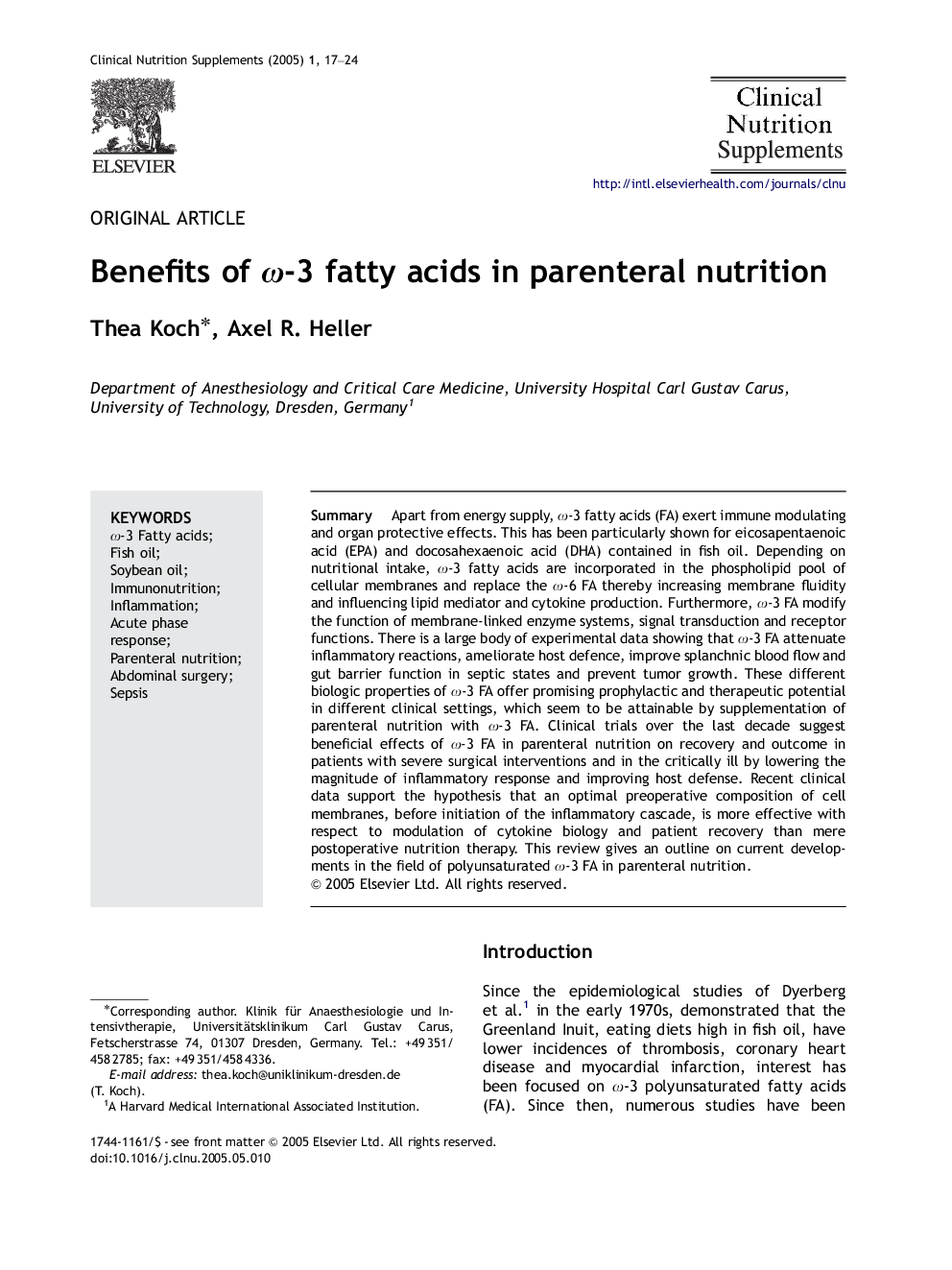| Article ID | Journal | Published Year | Pages | File Type |
|---|---|---|---|---|
| 9074142 | Clinical Nutrition Supplements | 2005 | 8 Pages |
Abstract
Apart from energy supply, Ï-3 fatty acids (FA) exert immune modulating and organ protective effects. This has been particularly shown for eicosapentaenoic acid (EPA) and docosahexaenoic acid (DHA) contained in fish oil. Depending on nutritional intake, Ï-3 fatty acids are incorporated in the phospholipid pool of cellular membranes and replace the Ï-6 FA thereby increasing membrane fluidity and influencing lipid mediator and cytokine production. Furthermore, Ï-3 FA modify the function of membrane-linked enzyme systems, signal transduction and receptor functions. There is a large body of experimental data showing that Ï-3 FA attenuate inflammatory reactions, ameliorate host defence, improve splanchnic blood flow and gut barrier function in septic states and prevent tumor growth. These different biologic properties of Ï-3 FA offer promising prophylactic and therapeutic potential in different clinical settings, which seem to be attainable by supplementation of parenteral nutrition with Ï-3 FA. Clinical trials over the last decade suggest beneficial effects of Ï-3 FA in parenteral nutrition on recovery and outcome in patients with severe surgical interventions and in the critically ill by lowering the magnitude of inflammatory response and improving host defense. Recent clinical data support the hypothesis that an optimal preoperative composition of cell membranes, before initiation of the inflammatory cascade, is more effective with respect to modulation of cytokine biology and patient recovery than mere postoperative nutrition therapy. This review gives an outline on current developments in the field of polyunsaturated Ï-3 FA in parenteral nutrition.
Keywords
Related Topics
Health Sciences
Medicine and Dentistry
Critical Care and Intensive Care Medicine
Authors
Thea Koch, Axel R. Heller,
